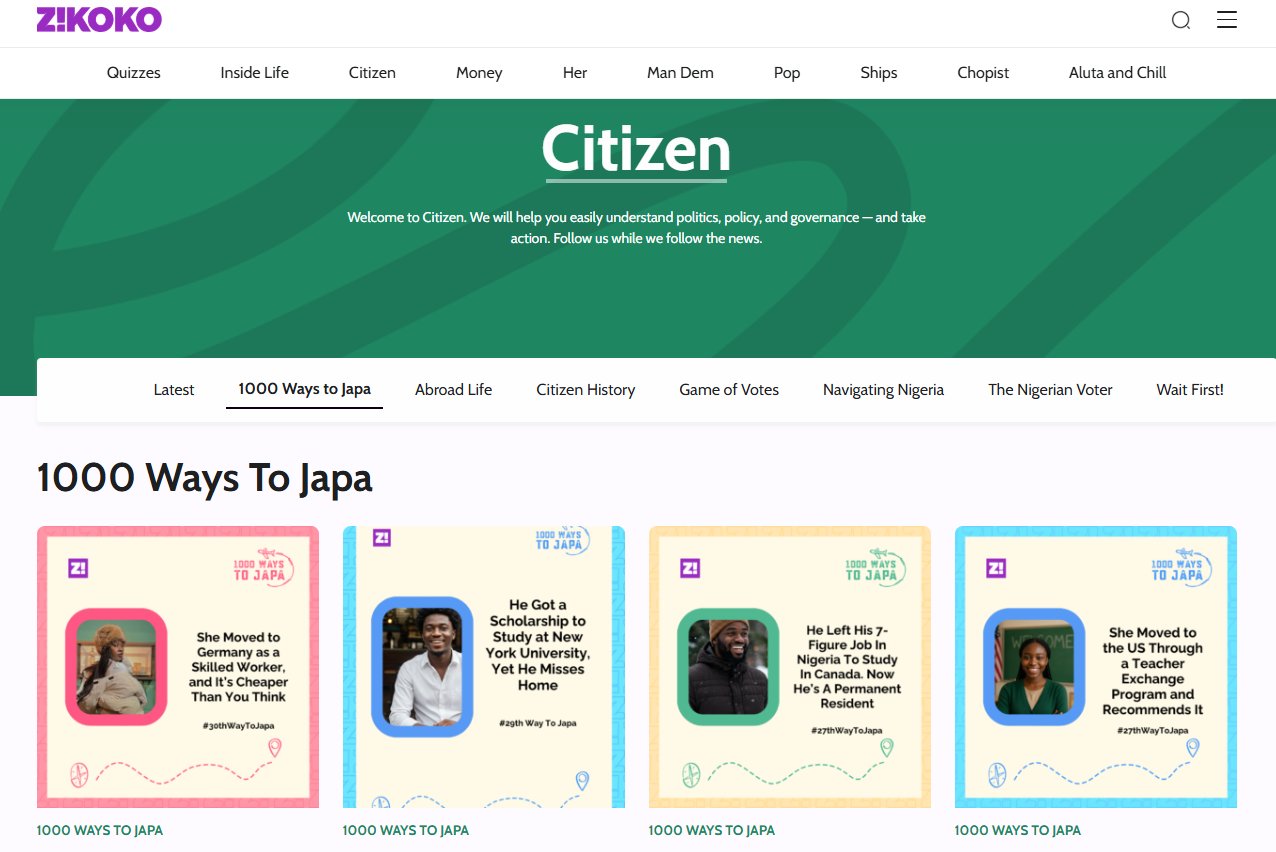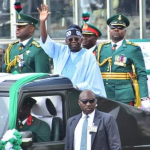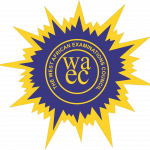
EXPOSED: Zikoko Citizen Another CIA Social Engineering Front Encouraging Young Nigerians to Immigrate to the West

An investigation by West Africa Weekly’s Editor-in-Chief, David Hundeyin, has raised serious concerns about foreign interference in Nigeria’s media landscape, particularly surrounding a popular emigration-themed content series published by Zikoko Citizen, a civic-focused vertical of the youth culture platform Zikoko.
The series, titled “1000 Ways to Japa”, has published weekly stories since October 2024, chronicling the personal journeys of young Nigerians who have left, or are in the process of leaving, the country for Western nations. According to Hundeyin’s analysis, 28 out of 30 featured stories focused on migration to countries like the United States, the United Kingdom, Canada, and Western Europe.
While the stories may appear aspirational to many readers, a deeper scrutiny by Hundeyin has revealed that the series has been aggressively promoted, including through paid placements on platforms such as Nairaland. This revelation prompted Hundeyin to probe further into the financial and institutional backers of Zikoko Citizen.
His findings, detailed in a lengthy thread posted on X, revealed that Zikoko Citizen receives funding through the Omidyar Network, a philanthropic investment firm founded by eBay billionaire Pierre Omidyar. Hundeyin noted that the Omidyar Network operates as a “CIA affiliate/front”, citing its involvement in media organisations like Premium Times and Sahara Reporters, which have also received grants from the network.
Zikoko Citizens’ 2025 report, which centres on combating “misinformation” and “disinformation,” added a further layer of intrigue to Hundeyin’s investigation. He said that this language is consistent with “infowar” tactics used in psychological operations to shape public opinion and behaviour, in this case, allegedly encouraging young Nigerians to emigrate en masse.
A foreign government from another continent is funding a 1,000-part web content series in your country designed to make young people obsessed with the idea of leaving,” Hundeyin wrote. “Think about the implications of this. In terms of social cohesion. In terms of national sovereignty and security. In terms of economic and social ideology.”
The suggestion that a foreign-backed organisation is strategically influencing Nigerian youth through soft power media campaigns raises concerns about media independence, narrative manipulation, and the potential erosion of national self-confidence in the face of global brain drain trends.
Read More:
- André Onana: Now is the time for Man United’s first-ever African goalkeeper to leave Old Trafford
- Nigeria: Students in Osun, Taraba, and Other States Write WAEC Exams Under Candlelight and Phone Torchlight
About The Author
Related Articles
Tinubu Government Delays Release of Signed Tax Acts to the Public
Four days after President Bola Tinubu announced the signing of four tax...
ByMayowa DurosinmiJune 30, 2025As Tinubu Urges Africa-Caribbean Unity in Saint Lucia, Over 272 Nigerians Killed in June Alone
While Nigerians deal with deadly violence, worsening hunger, and mass flooding, President...
ByWest Africa WeeklyJune 30, 2025You Can’t Tax a Dead Economy: Nigeria Is Suffocating Under Its Own Policies
As Nigeria’s Central Bank clings to its benchmark interest rate of 27.5...
ByWest Africa WeeklyJune 30, 2025“Wike is Not a Blessing to Us, He’s a Disaster” — Workers Protest in Nigeria’s Capital Over Unpaid Wages, Poor Working Conditions
Staff members of the Federal Capital Territory Administration (FCTA) in Abuja barricaded...
ByOluwasegun SanusiJune 30, 2025












Leave a comment